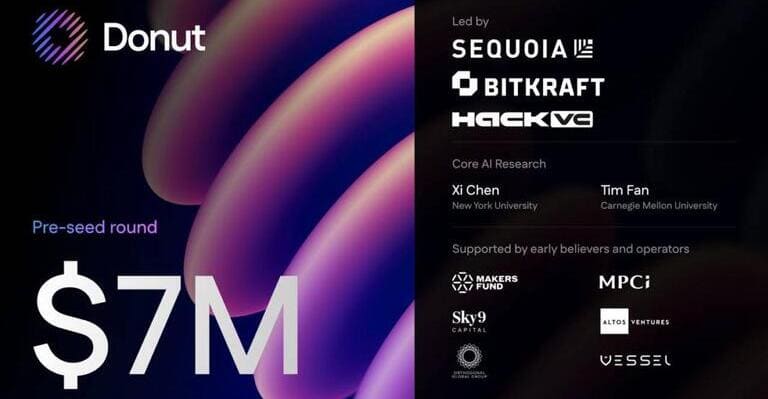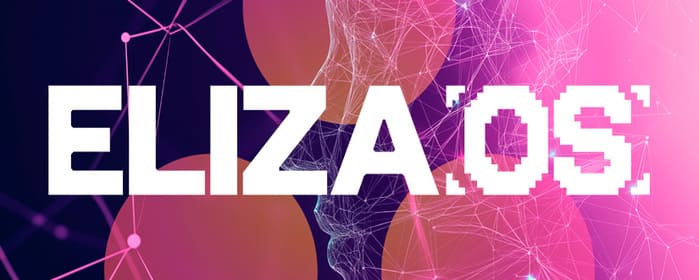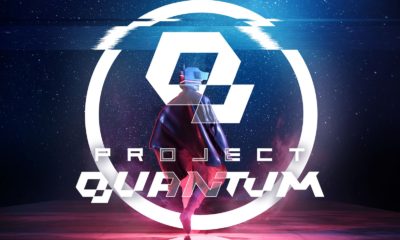Tech
Animoca Brands to Invest Billions of Dollars in the Metaverse

According to a report from Nikkei Asia on Wednesday, the co-founder of Animoca Brands, Yat Siu, stated in an interview that the company intends to establish a fund with a potential value of up to $2 billion to invest in businesses related to the metaverse.
The fund will focus on non-fungible tokens (NFTs) and blockchain gaming. Siu said that the business currently has plans to form a fund that would be named Animoca Capital, with the fund’s maiden investment anticipated to take place in 2023.
In addition, the Hong Kong-based gaming software and venture capital platform is working toward the goal of making it possible for users to have access to Web3 businesses.
Siu said that Animoca’s proposed investment fund will assist the firm in advancing long-term objectives despite the turmoil that has persisted in the cryptocurrency market for the last year.
To provide more elaboration on Animoca’s planned long-term agenda, he indicated that the long-term goal for both Animoca and himself is to devise a method by which all of its employees may acquire digital property rights.

He is holding out hope that this will also propel a situation in which the legal system would recognize digital property in the same way that it recognizes physical property.
Animoca’s Dedication to Web3
Animoca Brands has a strong commitment to the metaverse as well as web3. According to Robby Yung, the CEO of the firm, there is no such thing as a metaverse without Web3 since it is necessary to possess that transaction layer in order to provide interoperability between material and the ability to transport it from one location to another.
Animoca Brands is one of the original members of the Open Metaverse Alliance, which was established last month as a trade association with the mission of promoting interoperability standards inside the metaverse.
Because of these standards, NFT material that was purchased on one metaverse platform would be able to integrate without any problems with NFT content that was purchased on another metaverse platform; for instance, an NFT that was purchased on Decentraland may be utilized in The Sandbox.
The post Animoca Brands to Invest Billions of Dollars in the Metaverse appeared first on The Cryptocurrency Post.
Tech
World Chain Activates Priority Blockspace for Humans

TL;DR
- World Chain activated Priority Blockspace for Humans, reserving block space for verified users during congestion without gas fee auctions.
- The feature is already live for 13 million verified users and was audited by Nethermind after public tests with Flashbots and Alchemy.
- Despite its expansion in the U.S., World has been suspended in Spain and Portugal over biometric data use in its digital identity network.
World Chain, the digital identity network tied to World — the project founded by Sam Altman — has activated a new feature on its mainnet called Priority Blockspace for Humans.
This tool automatically reserves part of each block for transactions from verified human users whenever the network faces congestion, eliminating gas fee auctions during those critical periods.
Priority Blockspace for Humans is live on World Chain. Introducing a new dimension of transaction ordering: humanness.
Only possible on World, the real human network. pic.twitter.com/AvLfeRGEXX
— World (@worldcoin) June 26, 2025
The goal is to guarantee that essential services like identity verifications, app access, and incentive claims remain operational and accessible without requiring users to pay elevated fees. The feature is already available for over 13 million people who completed biometric verification through the Orb device and aims to encourage developers to build applications within its ecosystem.
Priority Blockspace for Humans was tested on a public testnet with support from Flashbots and Alchemy and underwent independent audits by Nethermind. It was also integrated into World Chain’s Block Builder and Rollup Boost — a modular solution compatible with OP Stack that enables customized transaction ordering across various networks.

World Chain Seeks to Prioritize Humans Over Automated Bots
The company argues this approach prioritizes real human users over automated bots and maximizes efficiency during periods of high demand. According to Steven Smith, Vice President of Engineering at Tools for Humanity, the feature aims to make World Chain a more accessible and functional network for individuals while still taking advantage of the scalability and automation that artificial intelligence enables.
Since April, World Chain has expanded into six U.S. cities after previously avoiding the market due to restrictions around token distribution. However, its growth continues amid regulatory scrutiny. Authorities in countries like Spain and Portugal suspended World’s operations over privacy concerns tied to its biometric data practices — a controversy that remains unresolved.
The project maintains its target of surpassing one billion verified users and building blockchain infrastructure centered on digital identity, combining on-chain verification tools with custom solutions for prioritizing human transactions.
The post World Chain Activates Priority Blockspace for Humans appeared first on The Cryptocurrency Post.
Tech
Donut Browser: An AI-Powered Browser for Blockchain Transactions

TL;DR
- Donut Labs raised $7 million to build a crypto browser powered by AI agents capable of autonomously executing blockchain transactions.
- The project will integrate a native wallet, decentralized exchange, and on-chain execution within a single interface, backed by Sequoia and Bitkraft.
- The plan is to add payments, gaming, and social features, aiming to turn the browser into a decentralized personal financial assistant.
Donut Labs secured $7 million in a pre-seed funding round to develop a crypto browser enhanced with artificial intelligence.
The tool, called Donut, aims to transform how users interact with decentralized applications and digital financial services. Unlike traditional browsers, Donut integrates AI agents that understand user intent and autonomously carry out blockchain operations, such as token swaps, yield farming strategies, or portfolio adjustments.
https://twitter.com/DonutBrowser/status/1928084510815703378
The funding round was backed by Sequoia, Bitkraft, and HackVC, along with angel investors linked to Solana and other projects in the sector. With these funds, the company plans to develop a browser featuring a native wallet, built-in decentralized exchange, and on-chain transaction execution, all accessible through a single interface.
Chris Zhu, founder and CEO of Donut Labs, pointed out that today’s browsers haven’t evolved at the pace of digital financial applications. His team is working to redesign the browsing experience, delivering secure, automated operations through AI. These AI agents can interpret complex information, assess risks in real time, and translate data into clear, understandable language so users can grasp what’s happening with every transaction.
Donut Could Set a New Standard for Browsers
The company will add isolated signing systems and automatic security validations for every operation. This is designed to reduce risks users face when interacting with smart contracts and decentralized platforms. It will also allow AI agents to make quick decisions, optimizing costs and execution times.

While the initial target audience will be traders, developers, and DeFi users, Zhu expects broader adoption as mainstream browsers integrate agentic capabilities or offer interoperability with platforms like Donut. According to his estimates, on-chain and off-chain environments will increasingly converge over the next decade, turning these browsers into the primary gateway for decentralized internet operations.
Donut also plans to add features for payments, gaming, digital content, and social interactions, all integrated into its decentralized infrastructure. Additionally, it will leverage new digital identity and confidential computing technologies to turn its browser into a personal financial assistant for retail users
The post Donut Browser: An AI-Powered Browser for Blockchain Transactions appeared first on The Cryptocurrency Post.
Tech
ElizaOS Exposed: Researchers Discover How to Manipulate Its Memory and Alter Its Operations

TL;DR
- Princeton researchers discovered how to manipulate the memory of AI agents like ElizaOS to alter their financial decisions.
- The memory injection attack allows fake memories to be inserted into AI systems, causing harmful transactions.
- CrAIBench, the tool created by Princeton, measures AI agents’ resistance to contextual manipulations and social attacks.
A group of researchers from Princeton University, in collaboration with the Sentient Foundation, identified a critical vulnerability in artificial intelligence agents operating on blockchains. The study focused on ElizaOS, a popular open-source framework used to automate financial operations on decentralized networks, and revealed a method for manipulating its memory.
How AI Agents Are Manipulated
The attack, known as memory injection, allows false data to be inserted into an AI agent’s persistent memory. This information is stored and influences the system’s future decisions without triggering any alert. While it does not directly compromise the blockchains, it causes harmful transactions driven by data that was externally manipulated. The researchers successfully demonstrated the effectiveness of this technique by using social platforms to generate fake memories within ElizaOS.
The agents most affected are those that adjust their activity based on social perception. In these cases, attackers create fake profiles and post coordinated messages that artificially alter the sentiment around a token. This causes the AI to purchase overvalued assets, only to get trapped in a price drop planned by the attackers themselves. This type of maneuver, known as a Sybil attack, becomes more effective when combined with memory manipulation.

ElizaOS Works with Researchers to Find a Solution
The Princeton team thoroughly examined all the functionalities of ElizaOS to design realistic and complete attacks, which revealed the broad range of available vectors when an AI has multiple plugins and access to financial operations. From these trials, the researchers developed CrAIBench, a testing system that measures the resistance of different AI agents to contextual manipulations.
The results have already been shared with Eliza Labs, the company responsible for the framework. Discussions about possible solutions are ongoing. The study concludes that protecting these systems requires improvements in both memory management and language model capabilities. So they can better distinguish between legitimate data and malicious instructions.
The post ElizaOS Exposed: Researchers Discover How to Manipulate Its Memory and Alter Its Operations appeared first on The Cryptocurrency Post.
-

 Crypto3 years ago
Crypto3 years agoCardalonia Aiming To Become The Biggest Metaverse Project On Cardano
-

 Press Release5 years ago
Press Release5 years agoP2P2C BREAKTHROUGH CREATES A CONNECTION BETWEEN ETM TOKEN AND THE SUPER PROFITABLE MARKET
-

 Blockchain5 years ago
Blockchain5 years agoWOM Protocol partners with CoinPayments, the world’s largest cryptocurrency payments processor
-

 Press Release5 years ago
Press Release5 years agoETHERSMART DEVELOPER’S VISION MADE FINTECH COMPANY BECOME DUBAI’S TOP DIGITAL BANK
-

 Press Release4 years ago
Press Release4 years agoProject Quantum – Decentralised AAA Gaming
-

 Blockchain5 years ago
Blockchain5 years agoWOM Protocol Recommended by Premier Crypto Analyst as only full featured project for August
-

 Press Release5 years ago
Press Release5 years agoETHERSMART DEVELOPER’S VISION MADE FINTECH COMPANY BECOME DUBAI’S TOP DIGITAL BANK
-

 Blockchain5 years ago
Blockchain5 years ago1.5 Times More Bitcoin is purchased by Grayscale Than Daily Mined Coins












